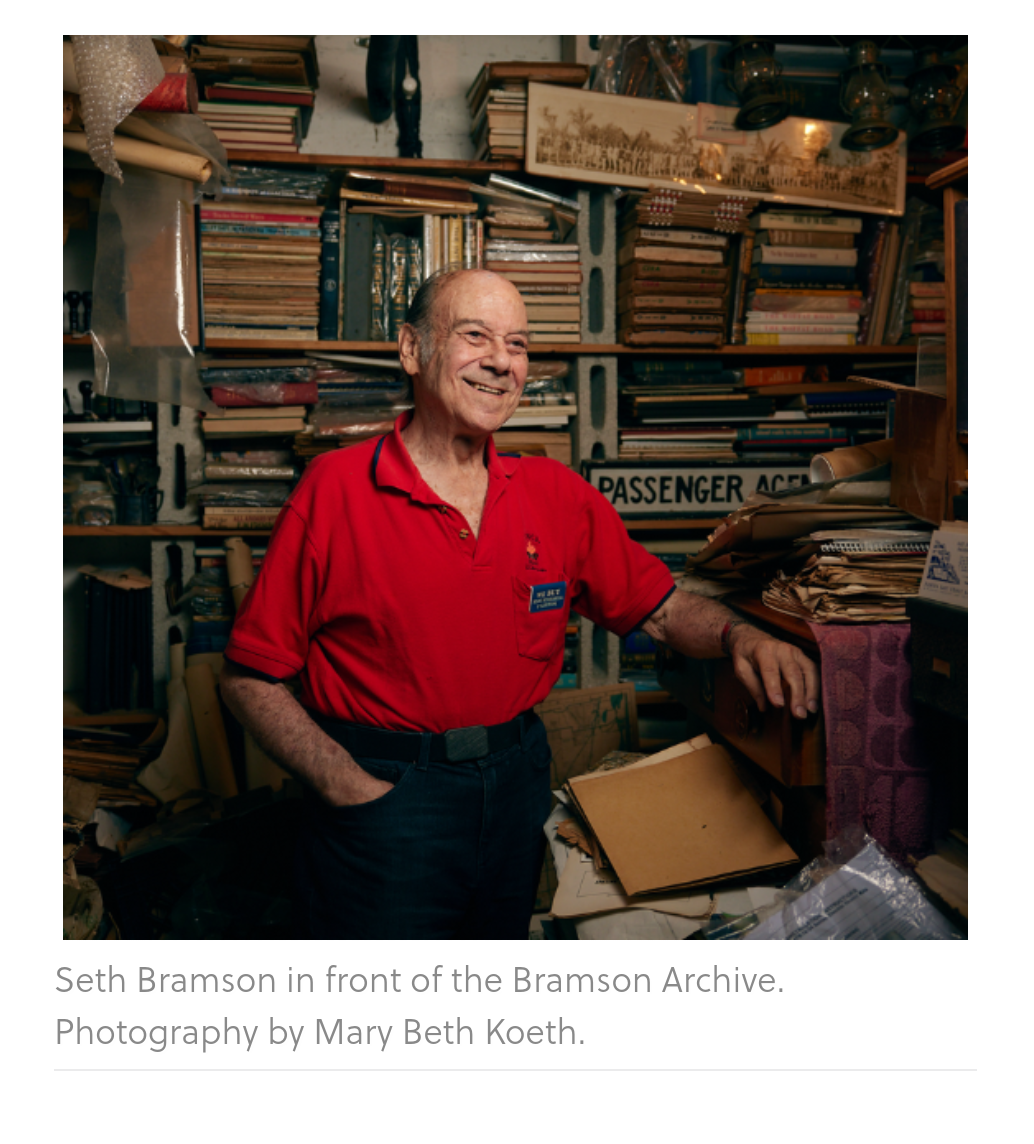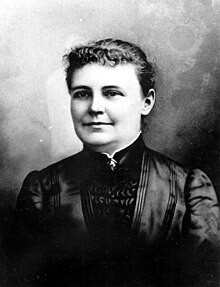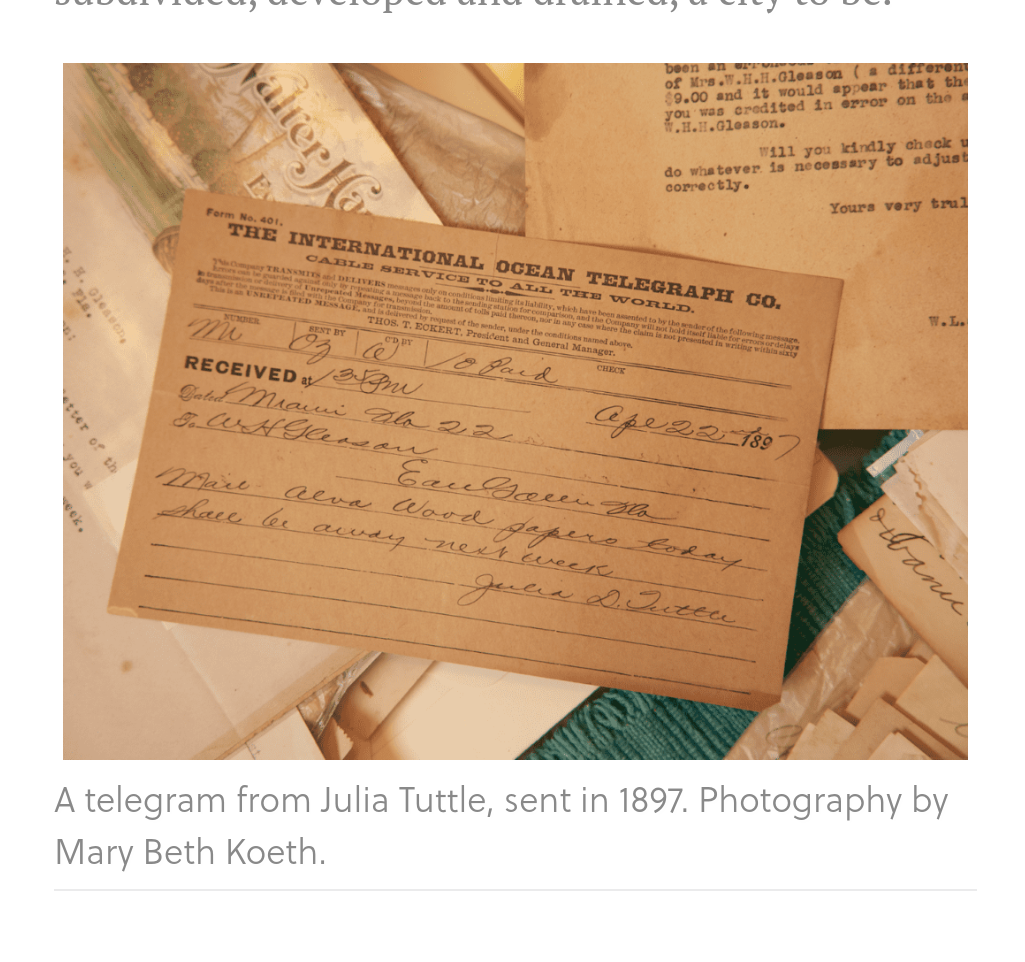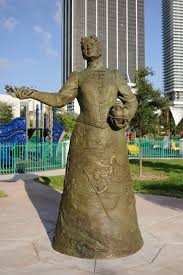


Monday 3rd of November 2025 01:57 PM


Unearthing a 127-Year-Old Message from Miami's Founding Mother
In the few surviving photographs of Julia Tuttle, she appears stern and resolute, dressed in a long, dark gown buttoned to the neck. Her expression resembles that of a disapproving mother scrutinizing a suitor. Yet, beneath this austere facade lies a remarkable story of resilience and vision.

Originally married to the owner of a foundry in Cleveland, Tuttle's life took a dramatic turn when her husband succumbed to tuberculosis in 1886. Suddenly thrust into financial turmoil, she took charge of her family's precarious situation, which had left them destitute.
Rather than resigning herself to a life of mourning and poverty, Tuttle embarked on a bold adventure, relocating with her two children to Florida. Here, she inherited a patch of land in the wild, swampy terrain at the southern tip of the peninsula—an area devoid of roads or paths. Undeterred, she set out to cultivate a city from the wilderness.
The Limited Legacy of a Visionary
Today, very few pieces of Tuttle’s correspondence remain, but one notable artifact is preserved in the Bramson Archive, a treasure trove of historical documents amassed by historian Seth Bramson. He holds what he believes to be the only telegram ever sent by Tuttle in Miami-Dade County, dated April 22, 1897. Its contents are intriguingly cryptic: “Mail alva wood papers today shall be away next week. Julia D Tuttle.”

Bramson, who has dedicated his life to chronicling Florida’s history, interprets this telegram as a glimpse into Tuttle's ambitious plans. At that time, she was purchasing vast tracts of land, intent on developing the region. While some herald her as the "Mother of Miami," Bramson asserts that her primary focus was survival and financial stability rather than the grand vision of city-building.

By 1897, Tuttle's dreams for South Florida resembled the fervent optimism of today’s tech startups—filled with potential but still very much in the realm of aspiration. Two years earlier, a winter freeze had devastated much of Florida’s crops, but Miami had escaped unscathed. Seizing the moment, Tuttle collected fragrant orange blossoms from her backyard and sent them to railroad magnate Henry Flagler, hoping to entice him to extend his railway southward. In a shrewd move, she offered Flagler a portion of her land along the Miami River in exchange for a railroad stop and a luxurious hotel.
Life in Fort Dallas
By the time she sent her telegram, Tuttle had settled in Fort Dallas, an area left abandoned after the Seminole Wars. With few tradespeople available, her living conditions fell far short of her previous lifestyle. Bramson describes her existence as “decent,” a far cry from the high society she once knew.

For Bramson, the telegram transcends its mundane transactional nature; it illustrates Tuttle’s role as a pioneering businesswoman in a time when such a term was nearly non-existent for women. He emphasizes the importance of relying on factual documents to uncover the truth about historical figures, noting, “When we have the factual documents, we know what the truth is.”
The Birth of a City
A year before Tuttle's telegram, Miami had been incorporated as a city, boasting just 512 registered voters. The groundwork for a thriving community was being laid, as plots were subdivided and developed. Tragically, Tuttle passed away in 1898 at the age of 50, leaving behind significant debts and unfulfilled dreams of a flourishing Miami. Her children were compelled to sell her holdings, and for decades, Tuttle's name faded from public memory.

That changed in 1959 when I-195 was renamed the Julia Tuttle Causeway, reviving interest in her contributions. Today, a statue commemorating her stands in Bayfront Park, and she is often referred to as the “Mother of Miami.”
A Vision for the Future
What would Julia Tuttle think of modern Miami, a bustling metropolis with a GDP nearing half a trillion dollars and dubbed the "Wall Street of the South"? Having shed the labels of a destitute widow, Tuttle once expressed her aspirations in a letter to a friend, writing, “It may seem strange to you, but it is the dream of my life to see this wilderness turned into a prosperous country.”
Her enduring legacy is a testament to her pioneering spirit, proving that even in the face of adversity, vision and determination can reshape the landscape of history.
Tags: Julia Tuttle, The Mother of Miami, Unearthing a 127-Year-Old Message from Miami's Founding Mother